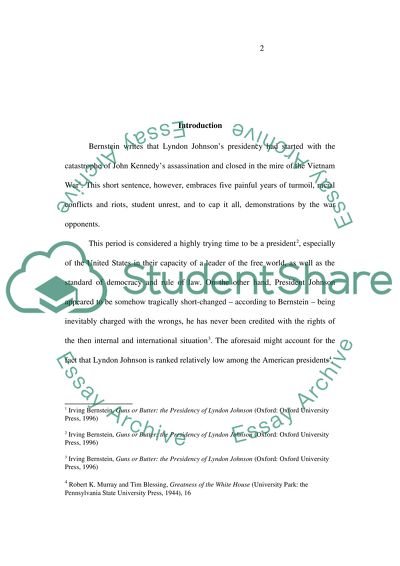Cite this document
(“Vietnam War vs. the Great Society: To What Extent Public Opinion Research Paper”, n.d.)
Retrieved from https://studentshare.org/history/1396571-vietnam-war-vs-the-great-society-to-what-extent-public-opinion-affected-lyndon-johnsons-decision-on-the-guns-vs-butter-dilemma
Retrieved from https://studentshare.org/history/1396571-vietnam-war-vs-the-great-society-to-what-extent-public-opinion-affected-lyndon-johnsons-decision-on-the-guns-vs-butter-dilemma
(Vietnam War Vs. The Great Society: To What Extent Public Opinion Research Paper)
https://studentshare.org/history/1396571-vietnam-war-vs-the-great-society-to-what-extent-public-opinion-affected-lyndon-johnsons-decision-on-the-guns-vs-butter-dilemma.
https://studentshare.org/history/1396571-vietnam-war-vs-the-great-society-to-what-extent-public-opinion-affected-lyndon-johnsons-decision-on-the-guns-vs-butter-dilemma.
“Vietnam War Vs. The Great Society: To What Extent Public Opinion Research Paper”, n.d. https://studentshare.org/history/1396571-vietnam-war-vs-the-great-society-to-what-extent-public-opinion-affected-lyndon-johnsons-decision-on-the-guns-vs-butter-dilemma.


